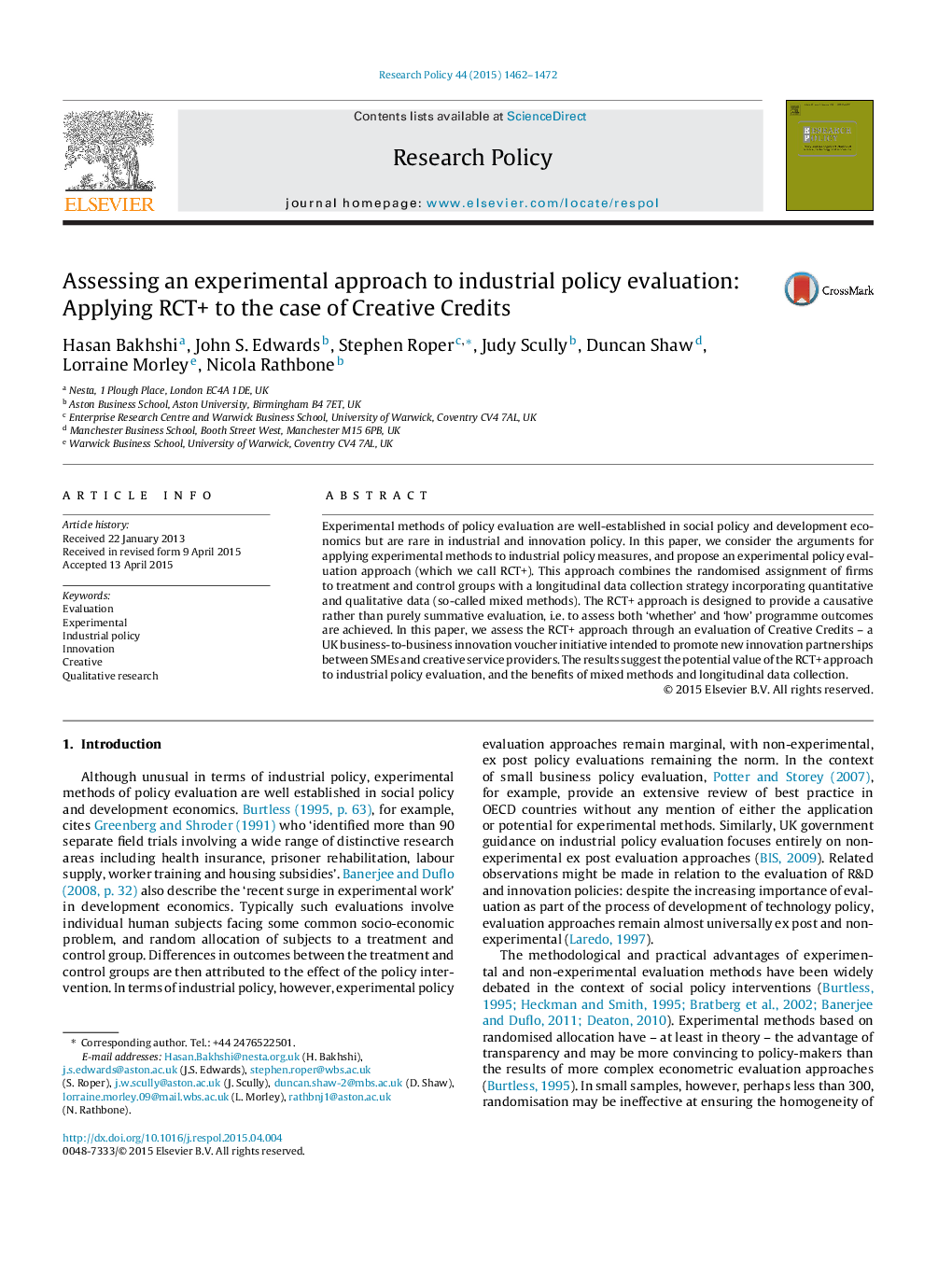| Article ID | Journal | Published Year | Pages | File Type |
|---|---|---|---|---|
| 10482940 | Research Policy | 2015 | 11 Pages |
Abstract
Experimental methods of policy evaluation are well-established in social policy and development economics but are rare in industrial and innovation policy. In this paper, we consider the arguments for applying experimental methods to industrial policy measures, and propose an experimental policy evaluation approach (which we call RCT+). This approach combines the randomised assignment of firms to treatment and control groups with a longitudinal data collection strategy incorporating quantitative and qualitative data (so-called mixed methods). The RCT+ approach is designed to provide a causative rather than purely summative evaluation, i.e. to assess both 'whether' and 'how' programme outcomes are achieved. In this paper, we assess the RCT+ approach through an evaluation of Creative Credits - a UK business-to-business innovation voucher initiative intended to promote new innovation partnerships between SMEs and creative service providers. The results suggest the potential value of the RCT+ approach to industrial policy evaluation, and the benefits of mixed methods and longitudinal data collection.
Related Topics
Social Sciences and Humanities
Business, Management and Accounting
Business and International Management
Authors
Hasan Bakhshi, John S. Edwards, Stephen Roper, Judy Scully, Duncan Shaw, Lorraine Morley, Nicola Rathbone,
